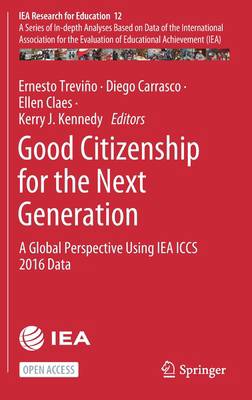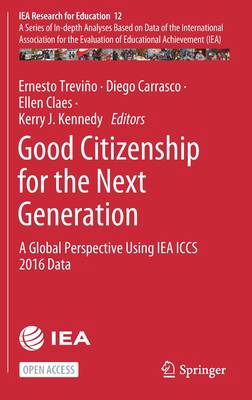
- Retrait gratuit dans votre magasin Club
- 7.000.000 titres dans notre catalogue
- Payer en toute sécurité
- Toujours un magasin près de chez vous
- Retrait gratuit dans votre magasin Club
- 7.000.000 titres dans notre catalogue
- Payer en toute sécurité
- Toujours un magasin près de chez vous
Good Citizenship for the Next Generation
Description
This Open Access book presents an international group of scholars seeking to understand how youth from different cultures relate to modern multidimensional concepts of citizenship, and the roles that education and society have in shaping the views of the world's future citizens. The book also explores how different aspects of citizenship, such as attitudes towards diverse population groups and concerns for social issues, relate to classical definitions of norm-based citizenship from the political sciences.
Authors from Asia, Europe, and Latin America provide a series of in-depth investigations into how concepts of "good citizenship" are shaped in different regions of the globe, using the rich comparative data from the IEA's International Civic and Citizenship Study (ICCS) 2016. In twelve chapters, the authors review the concept of "good citizenship"; how citizenship norms adherence is configured into profiles across countries; and what country, school, and background factors are related to how students adhere to citizenship norms. Recognizing contingent social and political situations in specific regions of the world, the present books offer six chapters where authors apply their expertise to offer locally relevant and pertinent observations on how young people from diverse cultures understand and relate to different dimensions of citizenship in countries of Asia, Europe, and Latin America.The present book is of relevance for different audiences interested in civic education and political socialization, including social sciences and education, integrating topics from political science, sociology, political psychology, and law.
Spécifications
Parties prenantes
- Editeur:
Contenu
- Nombre de pages :
- 229
- Langue:
- Anglais
- Collection :
- Tome:
- n° 12
Caractéristiques
- EAN:
- 9783030757458
- Date de parution :
- 01-09-21
- Format:
- Livre relié
- Format numérique:
- Genaaid
- Dimensions :
- 156 mm x 234 mm
- Poids :
- 517 g






